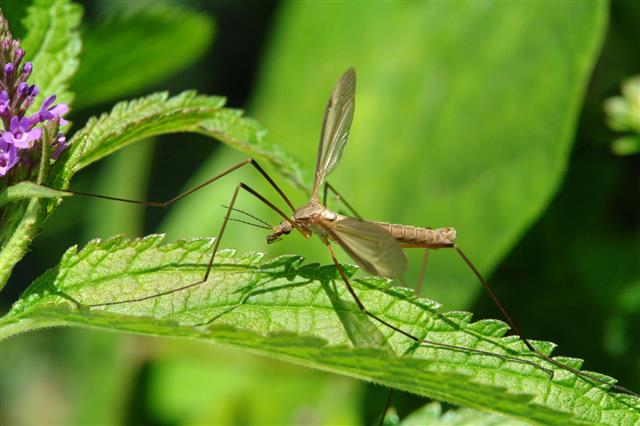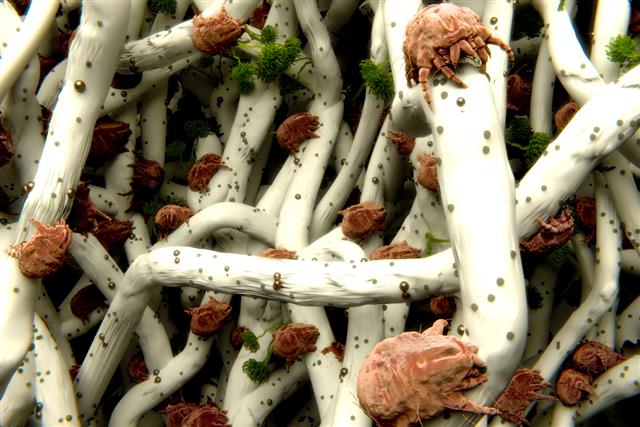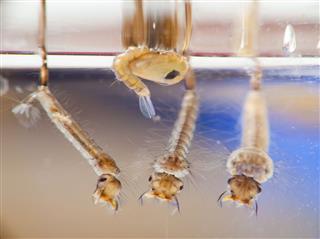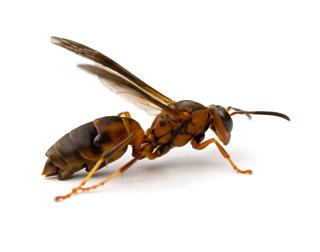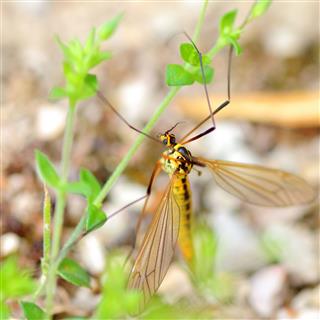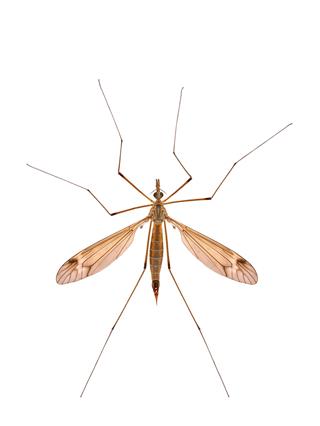
Parasites are organisms that depend on other biological hosts for deriving nutrition, shelter, and other benefits, while harming the host. There are many types of parasites that infest humans as well as animals.
Parasites are organisms that infect and enter a host organism, in order to derive nutrition and other benefits. These organisms often end up causing harm to the host. They not only infest humans but can also be a cause of concern for animals. A parasitic attack, in humans as well as animals, can cause a number of health problems such as diarrhea, fatigue, skin rash, nervousness, asthma, anemia, tissue damage, etc, in the host. Some classic examples of parasites in humans and animals include tapeworms, flukes, the Plasmodium sp., and fleas. There are a range of parasites that are classified based on the interaction with the host and their individual life cycle.
Different Types of Parasites:
…in Humans
There are many parasites that infect people and cause a number of disorders and diseases. They can invade your body through water and/or food sources, by inhalation, by direct contact with them, or via carriers like mosquitoes. As the parasites multiply, the infection gradually spreads, and can even turn into an epidemic.
Protozoa: They are single celled parasites that were first discovered by Antony van Leeuwenhoek, a Dutch scientist (also known as the “father of microbiology”). There are approximately 45,000 species of Protozoa that exhibit approximately the same physiological functions as other more complex organisms. They can infest the blood, nervous system, and digestive tracts of most humans. This single celled organism has two essential parts, the nucleus and the cytoplasm. Covered with a non rigid membrane, the protozoa has its own specific form of locomotion like cilia or flagella. Some of the common types include:
- Giardia lamblia
- Entamoeba histolytica
- Cryptosporidium
- Toxoplasma gondii
People infected with protozoan parasites may experience symptoms such as abdominal pain, fatigue, flush symptoms, weight loss, weakness, and diarrhea.
Helminths: Worm-like parasites are classified as helminths. While roundworms, tapeworms, flukes, and hookworms, in humans, are endoparasites, that is, they live inside the host’s body; leeches are ectoparasites that attach themselves to the outer parts of the host. One of the famous nematodes or roundworm is Trichinella spiralis, which lives in the muscle tissues of animals like pigs, and often gets transferred to the human intestinal system, when they happen to ingest infected, undercooked pork. Some of the most common types of helminths include:
- Pinworms
- Hookworms
- Roundworms
- Tapeworms
- Liver Fluke
Arthropods: Classified as crustaceans, insects, and arachnids, arthropods are organisms with tough exoskeletons and segmented bodies. While being parasites themselves, the diverse species of arthropods are also carriers of bacterial and viral diseases along with the protozoa and helminth parasites. For example mosquitoes which are classified as arthropods spread a number of diseases like malaria, yellow fever, heartworm, elephantiasis, and filariasis. They are, mostly, either carriers of parasites or act as ectoparasites.
…in Dogs
Parasites are a common health problem afflicting our canine friends. External as well as intestinal parasites are quite common in dogs since they have a penchant for curiously exploring their surroundings and ingesting anything that seems edible. Some of the most common parasites found in canines are as follows.
- Roundworms
- Whipworms
- Heartworms
- Tapeworms
- Hookworms
- Giardia
- Fleas
- Ticks
- Mites
- Lice
The symptoms of a parasitic infection will vary depending on the type of parasite, your pet’s age, nutritional status, parasite load, duration of infestation, etc. A dog infected with internal parasites will display symptoms like diarrhea, poor appetite, lethargy, coughing, and abdominal distention.
…in Cats
Like dogs, cats too are prone to suffering from a number of infections and diseases caused by a range of parasites. While some may cause life-threatening health problems, others can be treated with medications and other treatment procedures. They common parasites that infect cats include:
- Ear Mites
- Fleas
- Giardia
- Lice
- Ticks
- Intestinal worms (hookworms, roundworms, whip worms and tapeworms)
Infections and diseases caused by these parasites can be treated by a number of medical procedures and medications. However, the best way to avoid parasites and control the infection is by undertaking preventive measures. Sanitary conditions of water and food sources, proper cooking techniques, education about personal hygiene, and control of intermediate and vector host organisms such as your pet dogs and cats, can help you in eliminating the dangers posed by the different parasites.
